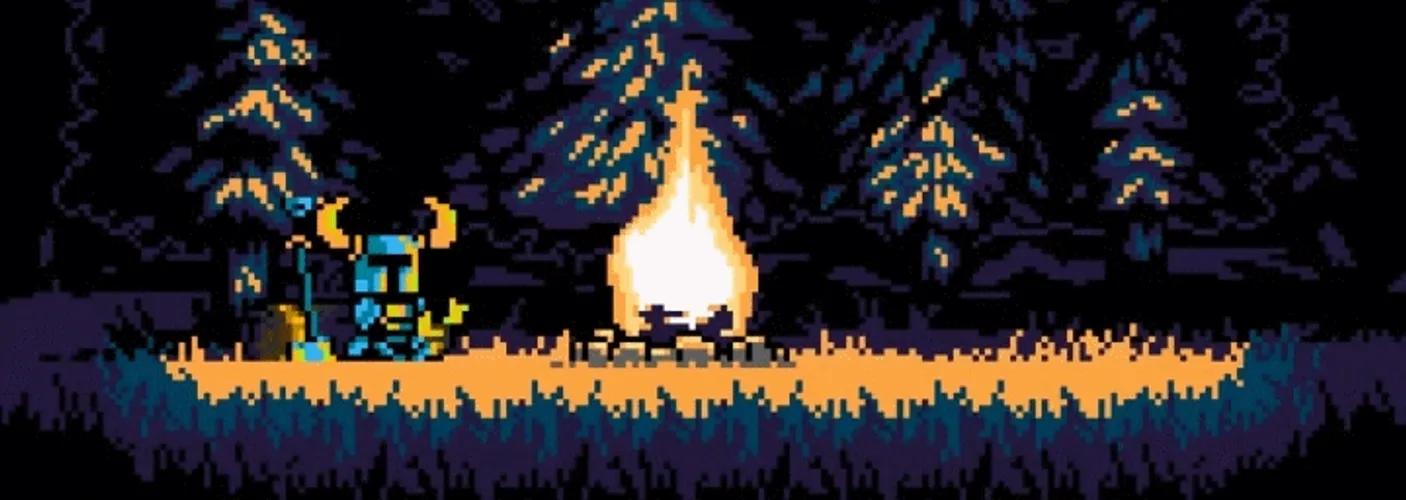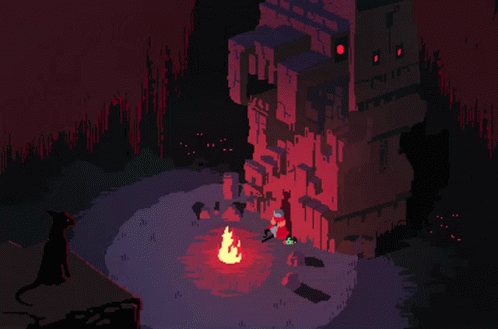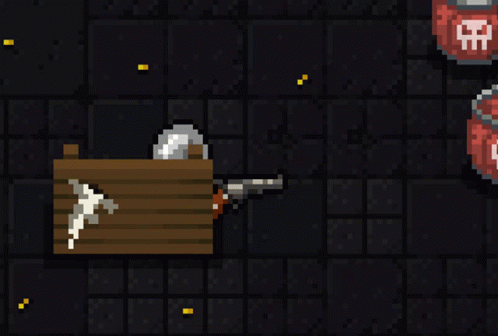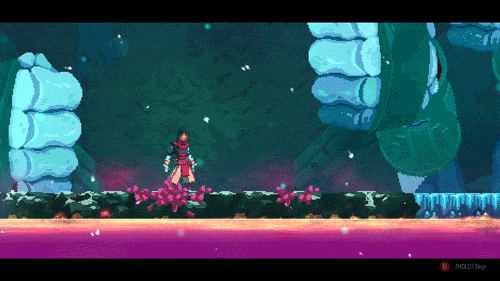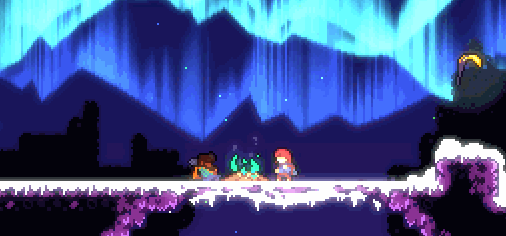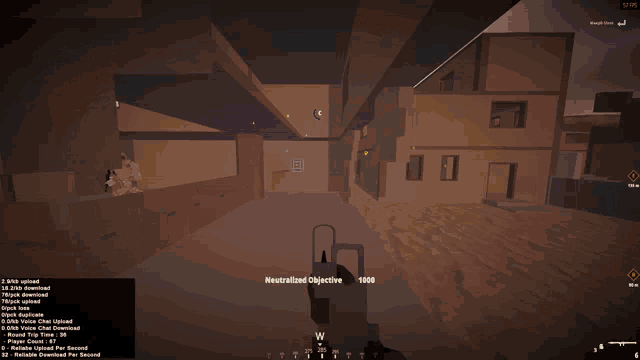Jubenhimer
Member
There have been many handheld game systems released over the years, many of the most popular come from a company known for making all those Itallian plumber games. Each of these systems are beloved in their own right, but one thing you may notice about them is how Japanese developers create games for portable systems, vs. how western developers approach them.
Western publishers have always tended to view handheld gaming as kind of a novelty compared to consoles. When it comes to the likes of EA, Ubisoft, Activision, THQ, etc. All their big boy teams focus on these big high quality console experiences, whereas whenever they want to make a handheld game, it usually consists of taking one of their popular console IPs, hiring some scrappy, underpaid studio from out in the middle of nowhere, and asking them to make a handheld version of that brand. Either that, or take the easy route and fart out some licensed kids game shit and call it a day.
That's not to say Western games on handhelds was always bad necessarily. The Game Boy Advance and Nintendo DS for example, both actually had pretty good western support when you think about it. The GBA got really good versions of all the Tony Hawk games that generation, plus a port of Max Payne of all things. Along with stuff like Duke Nukem Advance, ports of old school SNES and Genesis titles like Earthworm Jim, and side-scrolling versions of console games like Prince of Persia: Sands of Time.
And the DS got bespoke versions of all the Call of Duty games that generation on it, plus three Guitar Hero spin-offs, a really good Gran Theft Auto game, and some suprisingly decent versions of series like Need For Speed and Skate, and both systems got most of the yearly sports game franchises at the time. But these were all based on well established console brands, big name IPs that were thrown on to these systems because of their popularity.
While these may have all been decent games, they all looked pretty silly compared to what Japanese developers were doing on Handhelds. Japanese companies would very often create exclusive experiences that were unique to that system. Companies like Capcom, Square Enix, Konami, and Bandai Namco would often have their top AAA teams working on Handheld titles, in addition to console experiences.
I think the best comparison to illustrate this disparity is to compare Call of Duty: World at War from Activision, to The World Ends with You from Square Enix, both games on the Nintendo DS that released the same year in North America. CoD WoW on DS is a far cry from its console counterpart, but for a DS shooter, it's suprisingly pretty cool. The touch screen acts as a sort of mouse, where you aim with the stylus, and move with the D-Pad with various gameplay actions mapped to buttons on the touch screen. It's a very effective setup that even allows for very precise aiming. Then again, the DS is no Xbox 360, so all those bombastic set-pieces from the console games are non-existant in the DS version. The game also has some framerate problems, and due to hardware limitations, the levels sometimes feel like a shooting gallery.
A decent game, but its also one that feels like its just ridding off the brand recognition of a popular console IP. The World Ends with You meanwhile, was an ambitious, original IP created from the ground up for the DS, by the same team behind Kingdom Hearts no less. It's an RPG that utilizes the DS' touch screen and dual screen features to create a stylish and completely unique RPG that even to this day, has nothing else quite like it. And because it's a game specifically made for the DS, it was built to play to the strengths of the hardware graphics wise, so the game looks visually stunning with its highly detailed sprite-work.
So you see the stark contrast at the time, Western companies would often just try to just shrink console brands onto handhelds, while Japanese developers would create games and IP specifically for them. So when some people say western support for handhelds kinda suck, it's more that the kind of support western devs gave handhelds often looked rather lame in comparison to Japanese support.
However, there's one thing handhelds did shine with in regards to western games, and that's providing an outlet for smaller and less experienced studios. Yeah, before the mass proliferation of indies, handhelds were often good platforms for smaller, independent studios in the west. Wayforward, Fifth Cell, Rennegade Kid, Ready at Dawn, these are all teams that got their start making handheld games. Handhelds were often easier to develop for and less powerful compared to home consoles, which made them a good platform for small studios wanting to get into game development. A lot of the best western made games on handhelds were from these kinds of smaller, more niche studios. Dementium: The Ward, Scribblenauts, Drawn to Life, Shantae.
I guess the more things change, the more things stay the same even with the Nintendo Switch, which has the most support from western devs of any Nintendo handheld yet, still sees much of its western 3rd party support consist of indie games, remasters of PS360 titles, and "impossible ports" of PS4/XBO games, which often arrive much later and are handled by small specialized porting studios like Panic Button. Meanwhile Japanese developers like Capcom and Square Enix, are the ones making big exclusives for it such as Monster Hunter Rise or Octopath Traveler.
Western publishers have always tended to view handheld gaming as kind of a novelty compared to consoles. When it comes to the likes of EA, Ubisoft, Activision, THQ, etc. All their big boy teams focus on these big high quality console experiences, whereas whenever they want to make a handheld game, it usually consists of taking one of their popular console IPs, hiring some scrappy, underpaid studio from out in the middle of nowhere, and asking them to make a handheld version of that brand. Either that, or take the easy route and fart out some licensed kids game shit and call it a day.
That's not to say Western games on handhelds was always bad necessarily. The Game Boy Advance and Nintendo DS for example, both actually had pretty good western support when you think about it. The GBA got really good versions of all the Tony Hawk games that generation, plus a port of Max Payne of all things. Along with stuff like Duke Nukem Advance, ports of old school SNES and Genesis titles like Earthworm Jim, and side-scrolling versions of console games like Prince of Persia: Sands of Time.
And the DS got bespoke versions of all the Call of Duty games that generation on it, plus three Guitar Hero spin-offs, a really good Gran Theft Auto game, and some suprisingly decent versions of series like Need For Speed and Skate, and both systems got most of the yearly sports game franchises at the time. But these were all based on well established console brands, big name IPs that were thrown on to these systems because of their popularity.
While these may have all been decent games, they all looked pretty silly compared to what Japanese developers were doing on Handhelds. Japanese companies would very often create exclusive experiences that were unique to that system. Companies like Capcom, Square Enix, Konami, and Bandai Namco would often have their top AAA teams working on Handheld titles, in addition to console experiences.
I think the best comparison to illustrate this disparity is to compare Call of Duty: World at War from Activision, to The World Ends with You from Square Enix, both games on the Nintendo DS that released the same year in North America. CoD WoW on DS is a far cry from its console counterpart, but for a DS shooter, it's suprisingly pretty cool. The touch screen acts as a sort of mouse, where you aim with the stylus, and move with the D-Pad with various gameplay actions mapped to buttons on the touch screen. It's a very effective setup that even allows for very precise aiming. Then again, the DS is no Xbox 360, so all those bombastic set-pieces from the console games are non-existant in the DS version. The game also has some framerate problems, and due to hardware limitations, the levels sometimes feel like a shooting gallery.
A decent game, but its also one that feels like its just ridding off the brand recognition of a popular console IP. The World Ends with You meanwhile, was an ambitious, original IP created from the ground up for the DS, by the same team behind Kingdom Hearts no less. It's an RPG that utilizes the DS' touch screen and dual screen features to create a stylish and completely unique RPG that even to this day, has nothing else quite like it. And because it's a game specifically made for the DS, it was built to play to the strengths of the hardware graphics wise, so the game looks visually stunning with its highly detailed sprite-work.
So you see the stark contrast at the time, Western companies would often just try to just shrink console brands onto handhelds, while Japanese developers would create games and IP specifically for them. So when some people say western support for handhelds kinda suck, it's more that the kind of support western devs gave handhelds often looked rather lame in comparison to Japanese support.
However, there's one thing handhelds did shine with in regards to western games, and that's providing an outlet for smaller and less experienced studios. Yeah, before the mass proliferation of indies, handhelds were often good platforms for smaller, independent studios in the west. Wayforward, Fifth Cell, Rennegade Kid, Ready at Dawn, these are all teams that got their start making handheld games. Handhelds were often easier to develop for and less powerful compared to home consoles, which made them a good platform for small studios wanting to get into game development. A lot of the best western made games on handhelds were from these kinds of smaller, more niche studios. Dementium: The Ward, Scribblenauts, Drawn to Life, Shantae.
I guess the more things change, the more things stay the same even with the Nintendo Switch, which has the most support from western devs of any Nintendo handheld yet, still sees much of its western 3rd party support consist of indie games, remasters of PS360 titles, and "impossible ports" of PS4/XBO games, which often arrive much later and are handled by small specialized porting studios like Panic Button. Meanwhile Japanese developers like Capcom and Square Enix, are the ones making big exclusives for it such as Monster Hunter Rise or Octopath Traveler.



